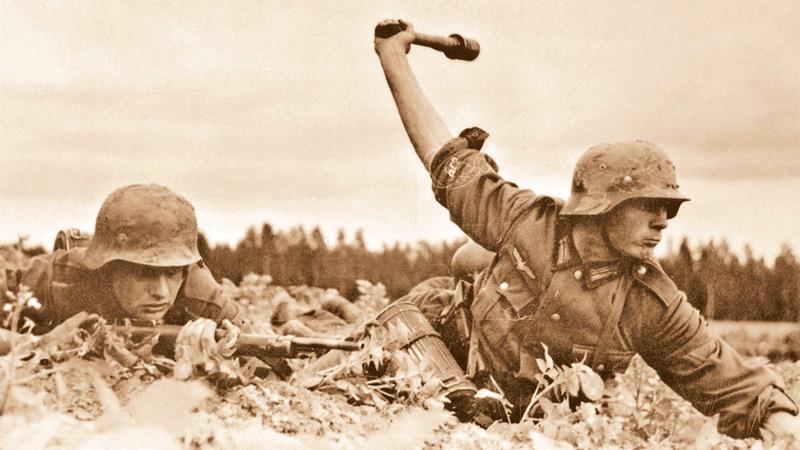
September 1, 2019 marked the 80th year since the commencement of World War II. This bloodiest and most destructive war in the history of mankind raged for six whole years. Armies from 61 countries with a total population of 1.7 billion people, that is 80 per cent of the total population of the planet then, took to guns. War operations engulfed 40 countries. World War II was the greatest tragedy of the 20th century and took the lives of over 60 million people.
The heads of Member States of the Commonwealth of Independent States (CIS) adopted a statement last month stating: “80 years after that mournful day, we urge the world to re-evaluate the lessons of that tragic period in our civilisation’s history. We advocate the revival of genuine interaction and understanding between countries and nations.”
It is indeed a genuine request. When we carefully venture into global calamities experienced during the last eight decades, it is reasonable to believe that this wish is going to be a distant dream.
The United Nations Organisation is making every effort to unite the world on the basis of equality, mutual respect and universal democratic values. Yet, the key question remains – is the world a safer place than eight decades ago?
Safer world
History does not necessarily move in one direction but has a knack of getting back in a loop. History books on World War II are shaded from individual nation perspectives. They do not mention thousands of other stories that were never relayed. The pain and agony of lost family members, relations, friends and neighbours, the lost property – are not touched upon in those books, which covered the heroism of the leaders.
Both World War I and II were one continuous phase of failed ideologies and mistrust. World War I (1914-1918) did not end with peace but a vague Pact that was destined to fail. History teaches us how the Treaty of Versailles sowed the seeds of inequality leading to dictatorial regimes and ideologies such as Nazism and Fascism. Expanding new territories and gaining lost territories became the new norm. The League of Nations went into oblivion, and the results of all these paved the way to World War II.
World War II has taught many people different lessons. Some learnt about the willpower of humans and what it means when one’s homeland is in danger. Others discovered humanity’s limitations, such as whether one can push their moral boundaries to serve their country despite the pressure of their own values.
There was no winning side in both wars while both sides lost countless number of people on the battlefield and in the communities. Thus, it’s time to reflect upon the past and ponder on the future course of the world.
When World War II began, most government leaders believed it wouldn’t last longAs we mark the 80th anniversary of WW ll are there any lessons that continue to resonate today?
We will never forget the bloodshed but we can learn from it and try to build a new foundation for the world that isn’t built on wars and treachery. It might not be a perfect world but it is one that we should aim at.
Reflecting on the past, several lessons emerge for future peace. History has shown the dangers of intolerance and xenophobia on the basis of race or religion. Victory over Nazism and Fascism could be considered as the main result of World War II. Yet, terrorism with religious and racial extremism continues as an ideology even in today’s world. It is fraught with severe dangers.
Nations thus run the risk of deploying in situations without understanding their complexities and contribute more to problems than solutions. Iraq, Afghanistan, Ukraine and Syria are only a few examples. The longevity of war was also a miscalculation.
When World War II began, most government leaders believed it wouldn’t last long. But when violence broke out and governments stubbornly clung to their pride, it became difficult to end the conflict.
The most important long-term consequence of World War II lies in the new institutions of international collective security and global legal governance that propelled humankind to build.
In the ensuing decades after the war, the globe has evolved in ways unimaginable to those who toiled in wartime factories or dodged enemy fire from the skies. In geo-political ways, the atomic bomb’s mass devastation reshaped how world powers view weapons of war and how they see their responsibility in safeguarding their countries.
A jihadi thousands of miles away can now recruit Sri Lankan teens to the Islamic State (IS). Hackers can hijack Sony’s internal servers and cause an international crisis. Has the advances in technology made knowledge gleaned during World War II obsolete, or are the lessons timeless?
The 21st century
So, what is the course we need to take in this 21st century? Should we not understand the challenges we face today as a different kind of war among nations but equally devastating as WW ll? The current conflict levels and terrorism-related deaths are rising steeper.
Proxy war, terrorism, limited wars, unilateral intervention across borders, and threats of non-state actors exploiting broader set of diffused lethal technology are on the rise. Democracy has contracted resulting in the degradation of democratic norms and instability.
The continuing economic warfare is undermining national integration in some countries. Economic sanctions have become the prime tools of geo-economics.
Sanctions are taking the place of the age-old military strikes, competing trade regimes replacing trade sanctions and currency wars competing with territorial wars.
Indeed, the world is still a dangerous place with surprises and miscalculations. Nations need to unite on the basis of equality, mutual respect and universal democratic values. Let us make the universe a safer place to live in peace, with prosperity. There is adequate space for all.
